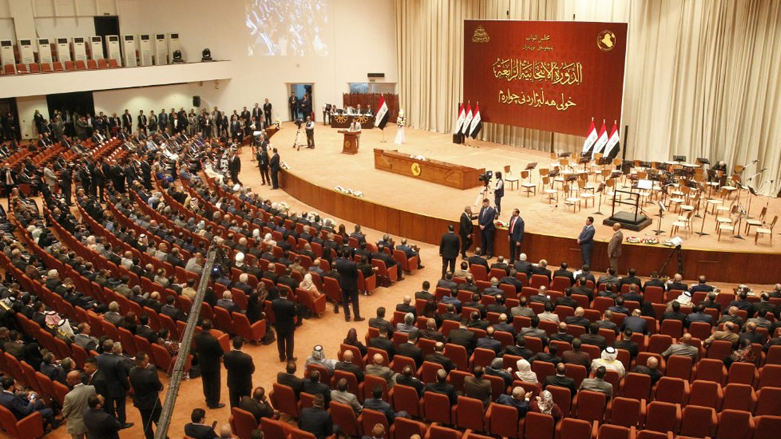MPs, finance minister argue for Kurdistan's share of Iraqi budget

ERBIL (Kurdistan 24) – Kurdish lawmakers and the Iraqi finance minister, also a Kurd, lobbied on behalf of a robust allotment of the Iraqi 2019 budget for the Kurdistan Region in a parliamentary session on Monday, claiming that constitutional provisions state the amount should reflect the region's percentage of the national population.
During the new Council of Representatives' 13th session, members of the 234 MPs in attendance discussed monetary policy, the amendment of the 2019 budget bill, and the newly-installed customs points between the Kurdistan Region and the rest of the country. The assembly was later adjourned until the next session, scheduled for Nov. 20.
"The Kurdish MPs officially presented all the notes they had on the bill and defended the right of the Kurdistan Region's share of the budget," member of parliament's Economic and Investment Committee Nahro Mahmoud told Kurdistan 24 after the session. Mahmoud is an MP from the Kurdistan Democratic Party (KDP).
The Kurdistan Regional Government (KRG) has long been at odds with Baghdad over its share of the national budget.
Though the Iraqi Constitution does mention a region's percentage of the population as a factor in how the budget is to be allocated, the wording regarding how this is to be calculated is vague and open to varying interpretations, similar to other constitutional provisions that have led to seemingly intractable disagreement between various factions.
Article 121 states that "Regions and governorates shall be allocated an equitable share of the national revenues sufficient to discharge their responsibilities and duties, but having regard to their resources, needs, and the percentage of their population."
In order to advise the region's lawmakers in Baghdad, various Kurdish factions previously agreed that a delegation of experts on financial and budgetary policy should go to the capital and meet with them.
Recently-appointed Finance Minister Fuad Hussein objected to the 2019 budget bill that was drafted by the former government and stressed the “need to reconsider” it, being mindful of demographics in the country. Hussein was in the session on Monday and voiced the concerns of the KRG leadership in Erbil.
The scheduled creation of the bill on the yearly budget begins in mid-May and ends on Sep. 15, with the draft intended to be handed over to parliament a month later. Thus, Haidar al-Abadi's caretaker government handled the process while Baghdad simultaneously addressed complaints of fraud in the contentious May national election.
"The bill was prepared by the former government," Hussein stated during the session. "The current administration has a different objective," which seeks to address the "reconstruction and economy of Iraq."
"There are differences between the two systems," he said.
Mariwan Nadir, an MP from the KDP's rival Patriotic Union of Kurdistan (PUK) told Kurdistan 24 that among the problems with the budget as presented is the fact that it does not specify the newly-designated province of Halabja as a distinct national governorate.
According to Mahmoud, the region's MPs represent just under 14 percent of all members of the Iraqi parliament. "The region's share must be 14 percent, and we have asked for this."
A commission from the Ministry of Finance and parliament's own Economic and Investment Committee are working to modify the bill, after which they will send it to the government for a review, and later put it up for the lawmakers' vote.
Editing by John J. Catherine
